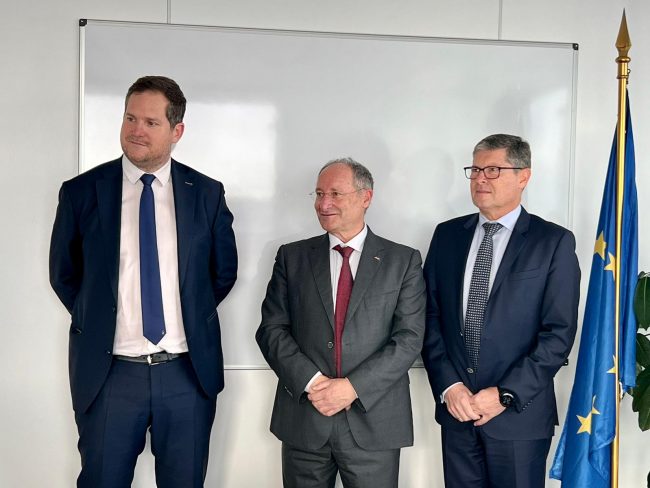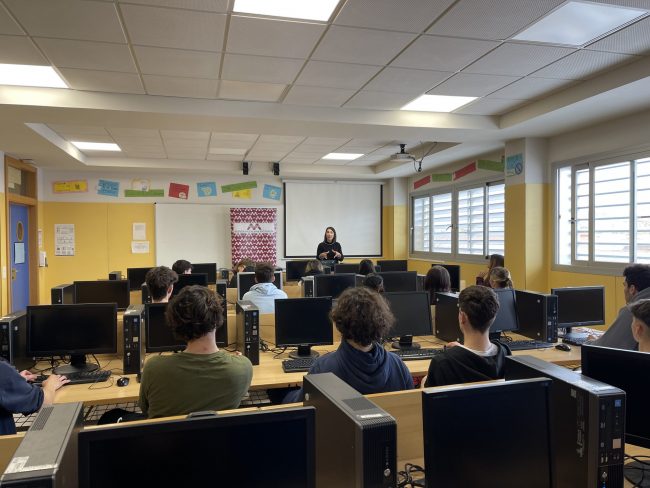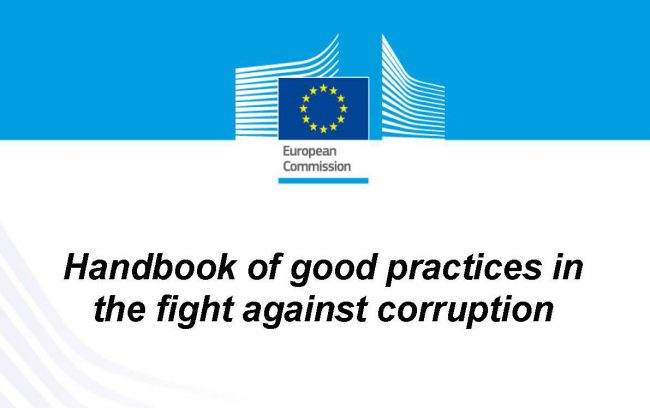The Valencian Anti-Fraud Agency meets in Brussels with the European Anti-Fraud Office (OLAF)
Valencia, 27 February 2023.- The Director of the Agency, Joan Llinares, accompanied by the Director of Analysis and Research, Gustavo Segura, and the Deputy Director and Legal Services, Teresa Clemente, met in Brussels with technical and management staff of the European Anti-Fraud Office (OLAF).
This meeting has allowed to strengthen the channels of collaboration between both institutions that will materialize in aspects such as the training of their staff, the exchange of information, as well as the sharing of experiences and good practices in investigative work or the protection of whistleblowers of corruption.
In recent years the Agency has carried out research actions in the Valencian Community in coordination with OLAF regarding the granting of European subsidies to different institutions and public administrations.
OLAF is the European Anti-Fraud Office created in 1999 by the European Parliament to combat fraud, corruption and other activities affecting the EU budget including irregularities within the European institutions.
The Director of the Agency, Joan Llinares, said that “this meeting has shown the support by OLAF for the work done by the Agency’s staff in those institutions in which it has requested collaboration”.
“In addition, the relationship between both institutions will intensify in the coming months with the exchange of experiences, training actions and agile and effective communication channels between the staff of the different areas of both institutions that will undoubtedly result in the work that is done on a day-to-day basis,” added Llinares.




 The 1st year of high school students of the IES Serpis in Valencia watched the documentary “Corruption: harmful organism” on Pandora Box TV, in a first session with the teacher responsible for the activity and heard the testimonies of informants of corruption in the public sector.
The 1st year of high school students of the IES Serpis in Valencia watched the documentary “Corruption: harmful organism” on Pandora Box TV, in a first session with the teacher responsible for the activity and heard the testimonies of informants of corruption in the public sector. The Valencian Antifraud Agency, through the training activity of #DocuforumAVAF, has the opportunity to show in the classrooms of schools, institutes and universities throughout the Valencian Community, the response that Les Corts gave, through the creation of the AVAF, to the mandate of the UN through the United Nations Convention against corruption. In turn, it allows students to share the challenges of the present and future in matters such as public integrity, prevention and protection of informants of corruption.
The Valencian Antifraud Agency, through the training activity of #DocuforumAVAF, has the opportunity to show in the classrooms of schools, institutes and universities throughout the Valencian Community, the response that Les Corts gave, through the creation of the AVAF, to the mandate of the UN through the United Nations Convention against corruption. In turn, it allows students to share the challenges of the present and future in matters such as public integrity, prevention and protection of informants of corruption.